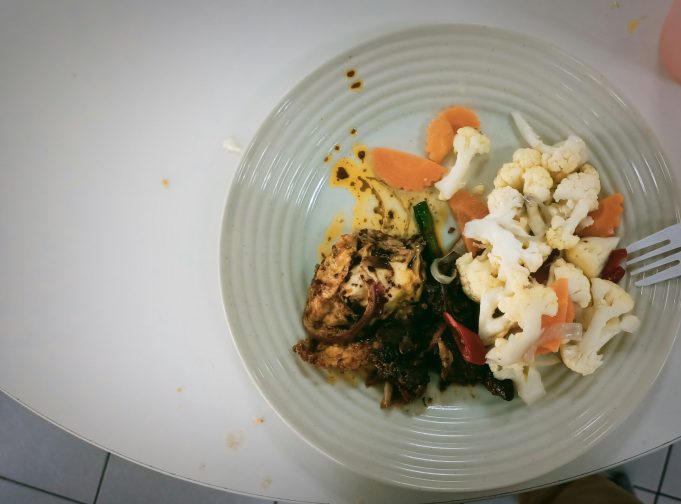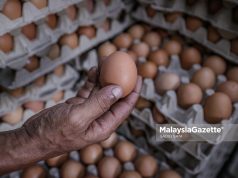By Dr. Azizi Abu Bakar, Dr. Noor Zalina Mahmood
ACCORDING to the SDG 12.3.1(b) indicator on the Food Waste Index, which measures the amount of food and inedible parts wasted at retail services and the consumer level, households must halve per capita global food waste by 2030. The Kunming-Montreal Global Biodiversity Framework, specifically in Target 16, emphasizes halving global food waste and substantially reducing waste generation by 2030. This is because unsustainable consumption is an underlying driver of biodiversity loss. Therefore, reversing biodiversity loss requires a shift towards more sustainable consumption patterns, due to the significant connection between eradicating food waste and preventing biodiversity loss.
In 2023, Solid Waste and Public Cleansing Management Corporation (SWCorp) reported that Malaysians discarded 16,720 tonnes of food daily, with this amount increasing remarkably by 15 percent during festive seasons. More than 90% of the food waste ends up in landfills daily, which is not treated in the long term. Urgent action is needed to address the increasing food waste to avoid unanticipated pollution. As we face an increase in food waste, one solution we can adopt is home vermicomposting. The final product of vermicomposting, known as vermicompost, is richer in plant nutrients compared to regular compost. During the vermicomposting process, the temperature remains in the mesophilic range, which eliminates pathogenic microorganisms. Research has shown that the final product—worm castings—is hygienic.
Several well-known species of worms are commonly utilized in vermicomposting, such as Eisenia foetida (European native red wiggler) and Eudrilus eugeniae (African nightcrawler, native to tropical West Africa). From our research, we found that utilizing Lumbricus rubellus, or leaf worm, in the vermicomposting process of vegetable waste mixed with paddy straw resulted in the highest increase in nutrient elements such as nitrogen (N), phosphorus (P), and potassium (K) in biofertilizer after 10 weeks of vermicomposting.
The action of worms consuming organic waste accelerates the rate of decomposition compared to traditional composting, which typically requires around three to five months for garden waste, depending on the heterogeneity of the organic waste mix. Other benefits of vermicomposting include producing vermicompost that is odourless, similar to mature compost from traditional composting processes, but with better nutrient availability. Additionally, vermicomposting leads to the destruction of pathogenic microorganisms, resulting in lower greenhouse gas emissions. To produce vermicompost, first, we need vermicomposting bins, which can be DIY-ed by reusing any plastic bin with a proper lid and ensuring there is an aeration area on the top and bottom of the bins. Additionally, there should be holes to drain the fluid from the vermicomposting bin, known as worm leachate.
In setting up a vermicomposting bin at home, first, the worms’ bedding should be prepared and moistened. It can be made from shredded newspaper, corrugated cardboard, or sawdust. The worm bedding at the bottom of the vermicomposting bin is important as a home for them to live. Second, the feed materials, or our food waste as organic waste, need to be pre-composted for at least two weeks to ensure a stabilized heat of the organic waste is obtained and should be moistened to the consistency of a wrung-out sponge. Avoid using any citrus fruits, meat, dairy products, salt, and peppers as feed materials.
Do take note that the ambient environment of the vermicomposting bin should be kept dark because worms are photosensitive. Place the bin in a quiet location, as worms are very sensitive to vibrations and noise, which can scare them and cause them to attempt to escape through the holes in the bin. In conjunction with World Nature Conservation Day observed annually on July 28th, it is crucial to encourage individuals and communities to take action towards sustainable practices such as vermicomposting. These practices align with the principles of conserving our nature. This initiative could raise awareness and foster a collective willingness to protect our nature and biodiversity.
Dr. Azizi is the Research Officer at Universiti Malaya Sustainable Development Centre (UMSDC), while Dr. Noor Zalina is the Head of UM Centre of Excellence – Environmental, Social and Governance (UMCoE-ESG), Universiti Malaya.

















